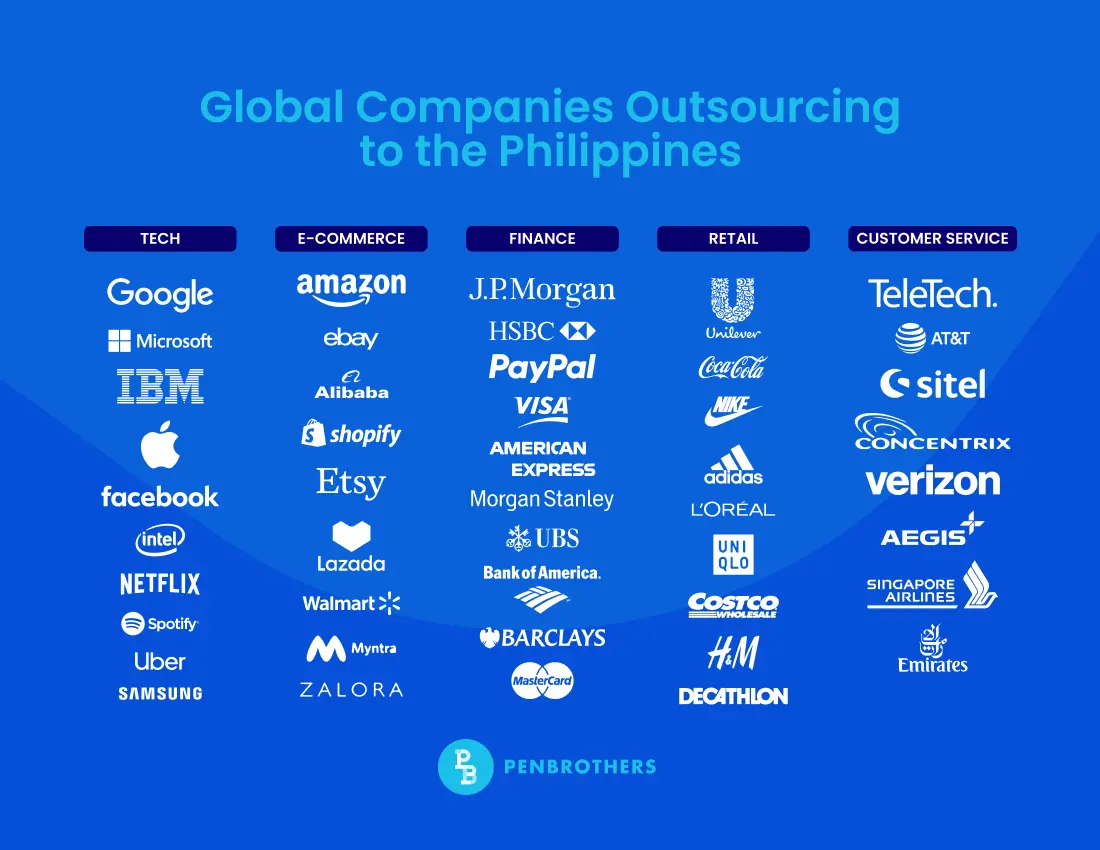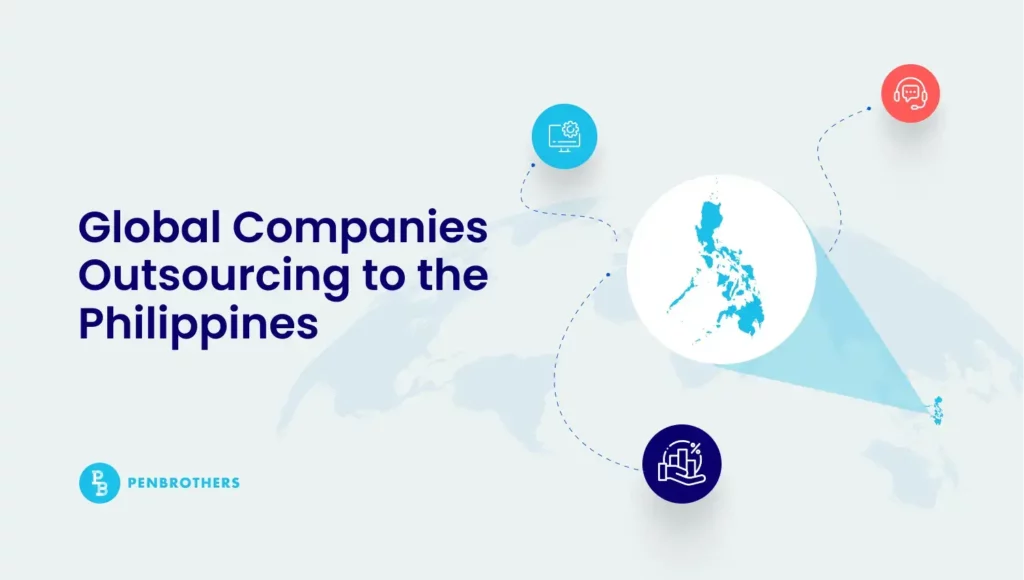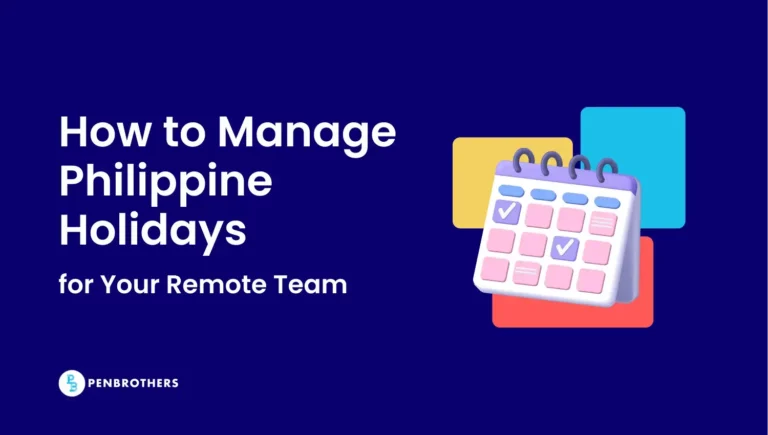When Canva’s co-founder decided to build their company’s customer service and engineering teams in the Philippines in 2014, other Australian startups called it risky. The conventional wisdom said you outsource to cut costs, not to build competitive advantage. Today, with a valuation of $42 billion, the results tell a different story. The figure, consistently reaffirmed through secondary market data in late 2025, reflects a company whose Philippine team was not a cost center, but strategic infrastructure that enabled scale most competitors couldn’t match.
The Philippine connection wasn’t accidental. Melanie Perkins chose the Philippines because, as she explained, “the family atmosphere inspires creativity.” What started with just six offshore employees in Manila has grown into one of the company’s largest global hubs, numbering in the hundreds and central to its worldwide operations.
Perkins understood something that traditional outsourcing thinking missed entirely: the best offshore partnerships aren’t about finding cheaper labor. They’re about accessing talent, building operational excellence, and creating sustainable competitive advantages that purely domestic teams can’t replicate.
As the global talent shortage accelerates, organizations are rethinking how they access skilled talent at scale.
This shift represents everything that’s changed about Philippine outsourcing since 2020. The companies winning today don’t treat offshore teams as vendors. They treat them as strategic partners.
Penbrothers has been recognized as a top global outsourcing firm, helping fast-growing companies build high-performing offshore teams in the Philippines.
Key Takeaways
- Penbrothers’ recognition as a top global outsourcing firm reflects a shift from cost-driven offshoring to strategic talent partnerships.
- Global companies increasingly value capability, culture fit, and long-term scalability over cheap labor.
- The Philippines remains a top outsourcing destination due to high English proficiency, cultural alignment, and deep talent pools.
- Penbrothers differentiates itself by focusing on custom-built offshore teams, not transactional outsourcing.
- Strategic offshoring enables companies to future-proof operations amid global talent shortages.

The Strategic Shift: Why 2025 Outsourcing Isn’t About Cost Savings
Something fundamental changed in how executives think about outsourcing. The old playbook—find the cheapest labor, negotiate hard on rates, measure success by dollars saved—stopped working when the global talent shortage became a reality.
While cost reduction remains a core value proposition, a fundamental strategic pivot is clear. The 2025 Deloitte Global Business Services (GBS) Survey confirms that while cost is a factor, GBS organizations now prioritize next-generation capability development and customer experience as their top priorities. For the most successful companies, access to skilled talent and agility are now equally critical drivers, positioning cost as a deteriorating value proposition relative to technological advancement and quality.
Businesses still save 20-70% on operational costs, but this is now the foundation for a much larger strategic goal: acquiring capability that is unavailable or unsustainable in their home market.
The pandemic normalized remote work, but it also revealed something more important: location doesn’t determine capability. Companies discovered that a software engineer in Manila could outperform their in-house team, that a customer service specialist in Cebu could deliver better experiences than expensive local hires. Remote work didn’t just become acceptable; it became strategic.
Quality and reliability have become the new differentiators. The companies in our analysis didn’t choose the Philippines because labor was cheapest there. They chose it because they could build something sustainable, scalable, and strategically valuable. That distinction separates the winners from the companies still chasing yesterday’s outsourcing playbook.
13 Companies That Mastered Philippine Outsourcing
These companies understood the assignment. While others debated cost per hour, they built competitive advantages. Their approaches reveal patterns worth studying: not just what they outsourced, but how they thought about it.
Tier 1: Tech Giants (Strategic Scaling)
Google recognized early that the Philippines could handle complexity, not just volume. Since 2013, their Manila operations evolved from basic customer support to a multi-function hub managing AdWords support, software development, and IT services across 60+ countries. This long-term commitment is underpinned by strategic infrastructure investments, including the TPU (Taiwan-Philippines-United States) subsea cable system, which is set for completion by the end of 2025. The strategic insight: treating their Philippine team as a regional nerve center, supported by state-of-the-art digital infrastructure, not a mere satellite office. This approach proved they could achieve massive global scale through strategic partnership, creating a core component of their worldwide operations.
Apple focused relentlessly on customer experience quality. Their Philippine customer service team doesn’t just answer calls; they protect the brand’s premium positioning through every interaction. Apple understood that outsourcing customer-facing functions meant outsourcing brand reputation. Their implementation approach centered on cultural alignment and communication excellence rather than technical specifications.
Meta/Facebook faced a unique challenge: moderating millions of pieces of content daily without compromising platform safety. Their Philippine content moderation team became essential infrastructure for global platform integrity. The strategic rationale was clear. This wasn’t just about handling volume, but about building sustainable systems for real-time quality control at unprecedented scale.
Amazon approached Philippine outsourcing as customer service excellence, not cost optimization. What began with their Cebu facility has expanded into a major operational presence in Manila, supporting North American and UK customers. The teams now handle not only customer service but also complex functions like financial operations and healthcare services, all aligned with the same rigorous standards as their domestic operations. Amazon’s insight: great customer service drives retention and revenue growth, making the quality investment economically superior to cost-cutting alternatives.
Tier 2: Financial Services (Compliance + Efficiency)
American Express represents the longest strategic partnership in our analysis. Over 100 years of operations culminating in dedicated Philippine centers for customer support, IT services, and collections. Their approach demonstrates how sustained investment and cultural integration create competitive moats that pure cost arbitrage cannot replicate.
Wells Fargo built their Philippine operations around risk management and regulatory compliance, critical differentiators in financial services. Their offshore team handles fraud analysis, financial accounting, and customer support with the same compliance standards required domestically. The lesson: heavily regulated industries can outsource successfully when they prioritize systems and governance over savings.
UnitedHealth Group, through Optum, created a healthcare-specialized offshore model covering consulting, analytics, and care operations. Their strategic rationale centered on accessing healthcare expertise and technology capabilities that enhanced patient outcomes rather than reducing operational costs. Healthcare specialization became their competitive advantage.
Tier 3: Scale-Up Success Stories (Growth Enablers)
Canva proved that offshore partnerships could accelerate startup growth rather than just manage existing operations. Their Philippines team grew from 6 employees in 2014 to over 250 by 2018, directly enabling their path to a $40 billion valuation. Melanie Perkins’ insight about “family atmosphere inspiring creativity” reflects understanding that cultural fit drives innovation, not just execution.
PayPal prioritized workforce quality from its late 2000s entry into the Philippines. Former Senior Director John Nicholls emphasized “exceptional service levels and high English proficiency” as selection criteria. PayPal’s quality-first approach enabled them to centralize customer operations while improving service metrics, proving that strategic outsourcing enhances rather than compromises customer experience.
Expedia adapted its travel industry needs to Philippine capabilities, creating reservation management and administrative support systems that scaled with its global expansion. Their implementation demonstrates how industry-specific requirements can be successfully translated to offshore operations through proper training and cultural integration.
Tier 4: Enterprise Brands (Operational Excellence)
Nike evolved from manufacturing outsourcing to service excellence, leveraging Philippine teams for customer support and operational functions that complement their Asian manufacturing presence. Nike’s strategic insight: integrating services and manufacturing outsourcing creates operational synergies and regional efficiency gains.
Nestlé viewed their Philippine operations through an ASEAN market strategy lens, establishing multiple local production plants and supply centers to serve regional expansion. Their approach demonstrates how outsourcing becomes a market entry strategy rather than just cost management, building a local presence that enables market penetration.
HP specialized its Philippine operations around technical support excellence, leveraging the country’s IT education infrastructure and technical capabilities. Since the early 2000s, HP’s approach has focused on matching complex technical requirements with specialized talent rather than pursuing generic cost reduction.
What These Success Stories Reveal
Each company made strategic choices about capability building rather than cost cutting. They invested in training, cultural integration, and quality systems because they understood that sustainable competitive advantage requires partnership thinking, not vendor management.
Their collective success illuminates a central truth: the companies winning with Philippine outsourcing treat it as strategic infrastructure for growth, not tactical cost reduction. That mindset shift makes all the difference between thriving and merely surviving.
How These Companies Chose to Outsource to the Philippines
The executives who built these partnerships weren’t browsing vendor catalogs. They were solving specific problems with clear requirements, and the Philippines kept surfacing as the answer. Not because it was cheap, but because the pieces fit.
Consider what they actually evaluated. English proficiency wasn’t just about language; it was about communication depth and cultural alignment. When PayPal’s John Nicholls praised “exceptional service levels,” he was describing something harder to quantify than accent neutrality. The Philippines produces professionals who understand context, read between lines, communicate with nuance. That matters when your offshore team represents your brand to frustrated customers at midnight.
The talent pool question runs deeper than headcount. These companies found specific skill combinations that domestic markets couldn’t deliver at scale. Google discovered software engineers who could handle complex AdWords algorithms while managing customer relationships across 60+ countries. UnitedHealth found healthcare professionals who combined clinical knowledge with analytics capabilities. The Philippines doesn’t just have people; it has the right people, educated in systems that emphasize both technical competence and collaborative problem-solving.
Government support translated into business environment stability. While other offshore destinations struggled with regulatory uncertainty or infrastructure limitations, the Philippines offered economic zones, favorable investment laws, and governmental commitment to the outsourcing sector. That stability matters when you’re building multi-year partnerships, not negotiating one-off projects.
Time zone advantages created operational efficiency gains that pure cost analysis misses entirely. Amazon’s Cebu facility supports both North American and UK operations because Philippine business hours bridge both markets effectively. Nike leverages their Asian presence for round-the-clock customer support. These are competitive advantages that enable better service delivery than domestic-only models.
Infrastructure development meant technology capabilities that matched enterprise requirements. The Philippines invested heavily in telecommunications, data centers, and digital infrastructure specifically designed for knowledge work. Companies found reliable connectivity, robust security frameworks, and technology capabilities that enabled seamless integration with existing systems.
The pattern emerges clearly: these companies chose the Philippines because they found strategic fit, not just financial arbitrage. They were building partnerships that would compound value over time rather than extracting short-term cost savings. That approach requires different evaluation criteria, longer timelines, and broader thinking about how strategic partnerships actually work.
Government support has strengthened the Philippines as a global outsourcing hub for international companies.The Philippines is a Strategic high-value services hub for complex operations
The companies that succeeded treated vendor selection like strategic partnership development, because that’s exactly what it was.
2025 Outlook: Why More Companies Are Following This Path
The math is getting harder to ignore. Every month, more executives discover what these 13 companies learned early: the alternative to strategic outsourcing isn’t cheaper domestic hiring. It’s falling behind competitors who figured this out first.
The talent shortage isn’t temporary turbulence. It’s the new climate. The World Economic Forum’s Future of Jobs Report 2025 confirms that the talent shortage is the new climate, not temporary turbulence. The report projects that while 92 million jobs will be displaced by 2030, 170 million new ones will be created—a net increase of 78 million. Furthermore, it highlights that two-fifths (39%) of the global workforce will need to reskill or upskill to meet these new demands, making strategic offshore partnership the only sustainable method for capability acquisition.
Companies that wait for domestic talent markets to correct will wait indefinitely. The smart money is building offshore partnerships now, while quality providers still have capacity.
Remote work normalization eliminated the last cultural barrier. When your CEO works from home and your best engineer lives three time zones away, geographic distance stops mattering. Performance matters. Results matter. The old objections about oversight and collaboration sound increasingly hollow when remote teams consistently outperform co-located ones.
Quality standards are rising, not falling. Philippine providers invested heavily in infrastructure, education, and process improvement during the pandemic. The gap between offshore and domestic capability continues to close while the cost differential remains substantial. Some functions now perform better offshore than onshore.
These 13 companies didn’t just outsource to reduce costs; they built strategic partnerships that enabled scale, improved quality, and accelerated growth. The difference between their success and typical outsourcing failures comes down to choosing the right partner and implementation approach.
The opportunity remains wide open, but it won’t stay that way. The best offshore partners are selective about clients, just as these companies were selective about partners. Quality attracts quality.
Continued outsourcing market growth underscores why companies invest in long-term offshore strategies.
What is a “Foreign Corporation” in the Philippines?
A company’s operational success in the Philippines requires navigating the legal definition of its presence. Understanding this distinction is crucial to moving beyond a simple vendor relationship and establishing a secure, strategic partnership.
A Foreign Corporation is defined by the Revised Corporation Code of the Philippines (Republic Act No. 11232) as one formed, organized, or existing under laws other than those of the Philippines. For a foreign entity to legally conduct business in the country, its home laws must allow Filipino citizens and corporations to transact business in its own country.
The act of “doing business” is broadly defined and includes:
- Soliciting orders, purchases, or service contracts.
- Opening offices (liaison, branches, or representatives).
- Appointing representatives or distributors who stay in the Philippines for 180 days or more in a calendar year.
The key regulatory body is the Securities and Exchange Commission (SEC), which issues the required license to transact business. Strategic outsourcing firms often assist foreign companies in structuring their operations to ensure full compliance from the beginning, moving swiftly from market entry to operational excellence.
Who Are the Big 4 Companies in the Philippines?
The Big 4 companies in the Philippines refer to the local offices of the world’s four largest global accounting and professional services firms. All four have long-established operations in the country and play a critical role in supporting multinational corporations, large Philippine conglomerates, and foreign investors.
The Big 4 firms operating in the Philippines are:
- Deloitte Philippines
- PwC Philippines
- EY Philippines
- KPMG Philippines
These firms provide a wide range of professional services, including:
- Audit and assurance
- Tax advisory and compliance
- Risk management and regulatory advisory
- Consulting and transaction services
For foreign companies entering or expanding in the Philippines, the Big 4 often serve as trusted advisors—helping navigate regulatory compliance, corporate structuring, taxation, and governance requirements. Their presence reflects the maturity of the Philippine business environment and its alignment with global corporate standards.
Beyond the 13: What American Companies are Expanding in the Philippines?
While the initial 13 case studies provide a blueprint for success, they represent a small fraction of the deep, ongoing investment commitment from the American private sector.
The focus on the Philippines as a strategic infrastructure partner—rather than a cost center—has led to a surge in high-value, digitally-focused investments. In late 2025, a delegation of major U.S. companies, including IBM, Citi, Coca-Cola, Salesforce, Texas Instruments, and Mastercard, affirmed their commitment to expanding investments in the Philippines.
These companies are prioritizing growth in three strategic areas:
1. Advanced Digitalization and AI
The new wave of investment is heavily focused on next-generation capabilities. Companies are launching programs to accelerate AI adoption and digital transformation within the local workforce. This focus is directly tied to the Philippines’ ability to staff complex, high-wage jobs.
2. Semiconductor and Manufacturing
The Philippines is being leveraged as a key partner in the global semiconductor supply chain. The country’s commitment to building a robust talent pool of semiconductor engineers and technicians by 2028 is driving investment from firms seeking regional stability and advanced technical talent.
3. Critical Infrastructure
Alongside Google’s subsea cable investment, the U.S. government and private sector are coordinating investments through initiatives like the Partnership for Global Infrastructure and Investment (PGI). These initiatives prioritize projects within the Luzon Economic Corridor to improve connectivity, energy security, and logistics, transforming the country into a true regional hub.
This collective movement underscores the shift: The Philippines is no longer seen as merely a country for customer service, but as a strategic ally for securing technological capability and future-proofing critical supply chains.
Ready to build your strategic advantage? Talk to our team about creating offshore partnerships that compound value rather than just cut costs.
Frequently Asked Questions
Penbrothers focuses on building long-term offshore teams tailored to each client’s business goals. This strategic approach goes beyond cost savings and prioritizes performance, culture fit, and scalability.
Unlike vendors offering generic roles, Penbrothers builds dedicated teams integrated into clients’ operations. This results in higher accountability, retention, and business impact.
Yes. Penbrothers is designed for scale-ups and enterprises that need to grow teams quickly without compromising quality or control.
The Philippines offers a strong combination of skilled talent, English fluency, and cultural compatibility, making it ideal for strategic offshore partnerships.






